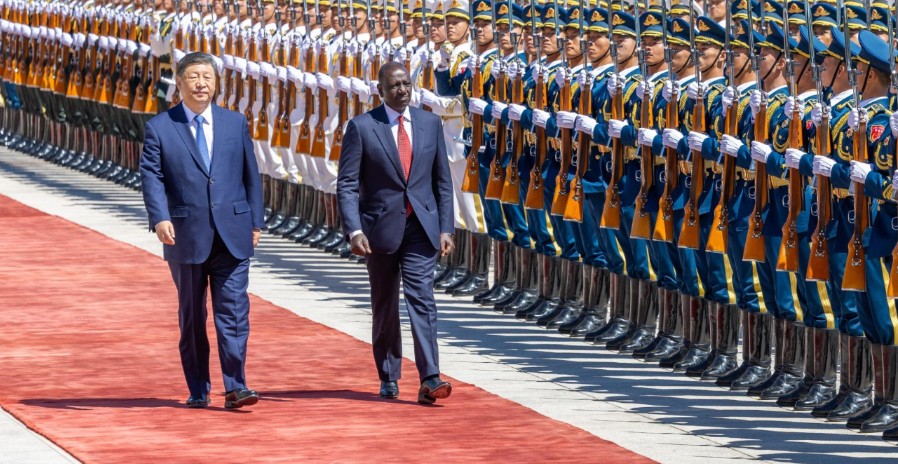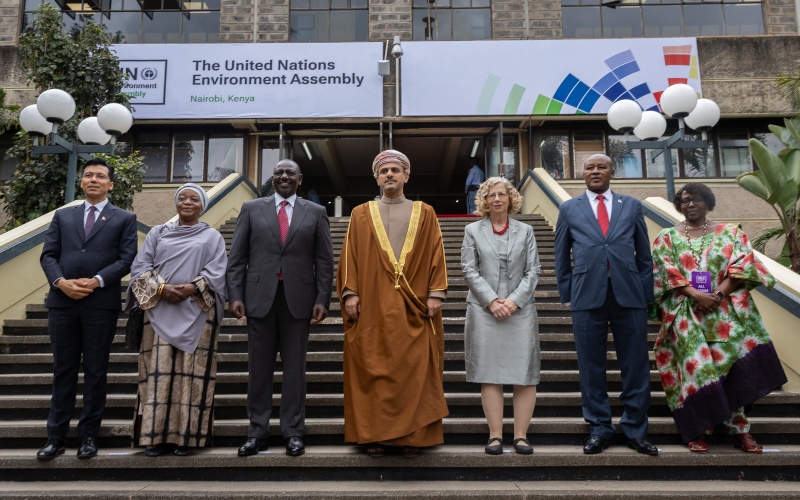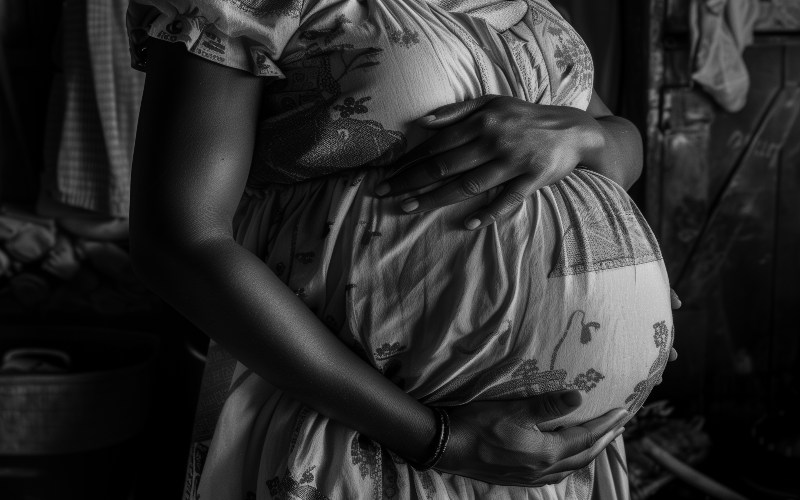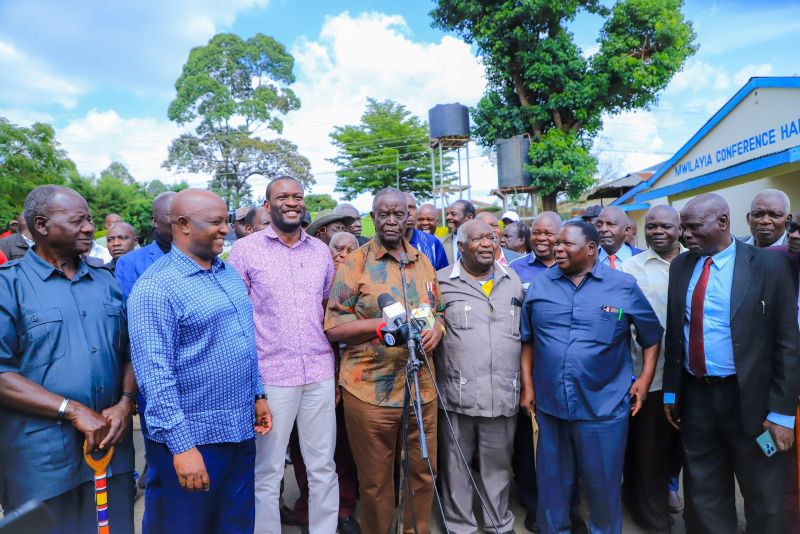Kenya reasserts sovereignty amid US scrutiny over China ties

Prime Cabinet Secretary Musalia Mudavadi said Kenya's diplomacy is guided by national interest, not external pressure.
Kenya has pushed back against recent remarks by US Senator James Risch, the influential chair of the Senate Foreign Relations Committee, amid growing scrutiny over Nairobi's deepening ties with Beijing.
In a televised interview Tuesday evening, Prime Cabinet Secretary Musalia Mudavadi firmly reasserted the country's sovereign right to determine its foreign partnerships, emphasising that Kenya's diplomacy is guided by national interest, not external pressure.
More To Read
- High Court halts Sh208 billion Kenya–US health deal over privacy, constitutional concerns
- Omtatah files court petition to halt Kenya–US health deal, cites unconstitutionality
- Health Ministry denies sharing Kenyans’ private medical data under US partnership
- Kenya exports Sh50.87 billion worth of goods to US ahead of AGOA expiry
- China deploys 48th Naval Escort Fleet to Gulf of Aden for anti-piracy mission
- Chinese companies are changing the way they operate in Africa: Here’s how
"Kenya is a sovereign state. It's absolutely important," Mudavadi declared on Citizen TV, invoking an English idiom—albeit slightly misquoted—by saying, "the Englishman's heart is his castle."
While the original phrase is "an Englishman's home is his castle," the point was unmistakable: a satirical jab at Washington, subtly suggesting that the US should focus on its own affairs.
"No matter the state of our nation, there is one thing that we must always safeguard—our sovereignty and the right to choose our friends and how to work with them," he continued. "That is a principle we must uphold."
Mudavadi disclosed that he had formally communicated with Senator Risch to clarify the country's foreign policy stance and extended an invitation for him to visit Nairobi for further dialogue.
The diplomatic rift follows President William Ruto's recent state visit to China, where he pledged closer ties with Beijing and delivered a keynote address at Peking University calling for a "new global order that is fair, inclusive, and sustainable."
Ruto described the current international system as "broken, dysfunctional, and no longer fit for purpose."
Those remarks, delivered on Chinese soil, were met with unease in Washington, particularly in light of Kenya's designation as a Major Non-NATO Ally (MNNA)—a strategic status granted by the US that comes with enhanced security cooperation and preferential access to American defence resources.
In defending Kenya's position, Mudavadi noted that even rival superpowers like the US and China continue to engage diplomatically and economically.
"They are working together. They engage every day to reconcile matters to do with trade," he observed, implying that Kenya, too, should not be boxed into a binary choice between East and West.
As geopolitical competition intensifies, Kenya's attempt to maintain a delicate balancing act between Washington and Beijing underscores a broader shift among African states: asserting strategic autonomy while navigating the competing interests of global powers.
Whether Washington embraces Kenya's multipolar diplomacy or interprets it as drift remains to be seen.
But for now, Nairobi is making it clear—it will not be told who its friends should be.
Top Stories Today












































